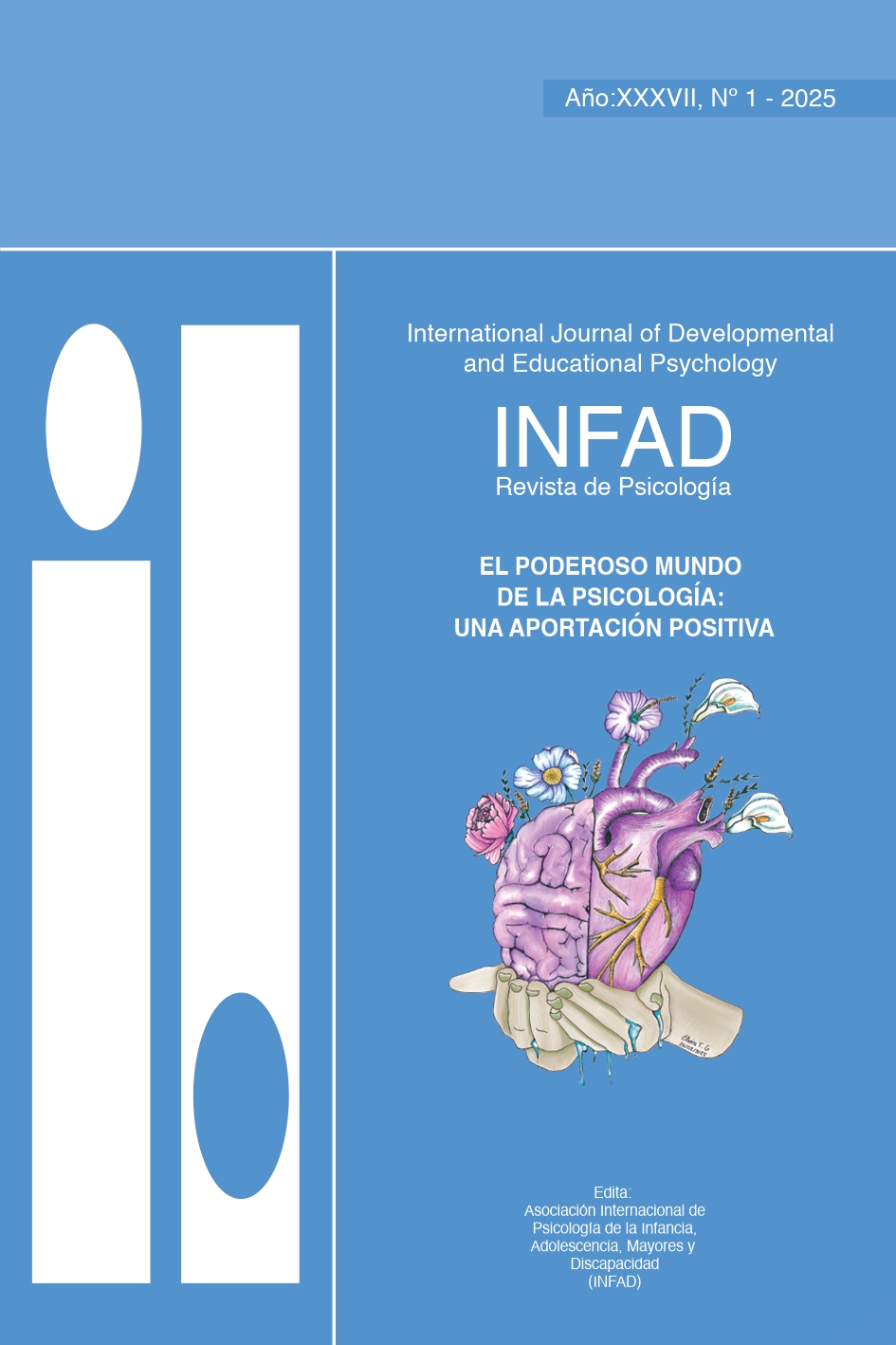Art education and emotional health: the ukiyo project as a comprehensive proposal for well-being in the MEDART master's program
Main Article Content
Abstract
The Ukiyo Project is a collaborative initiative between the Faculty of Fine Arts at the Complutense University of Madrid (UCM) and the Faculty of Psychology at the University of Guanajuato (Mexico), aimed at promoting emotional well-being and mental health in the university environment through art. This initiative has been implemented within the courses “Didactic Foundations of Art Education” and “Artis, Creativity and Education” in the Fine Arts undergraduate program and “Planning, Design of Activities and Didactic Resources in Art Education,” part of the Master’s Degree in Art Education in Social and Cultural Institutions at UCM. Adopting both pedagogical and therapeutic perspectives, the project uses methodologies grounded in aesthetic experience and artistic creation to foster a participatory and meaningful teaching-learning process. Inspired by the Japanese concept Ukiyo , which refers to “living in the present moment,” the project addresses the post-pandemic context where students’ mental health has been significantly impacted. It builds upon previous experiences such as Curarte (R&D, 2006–2024), A.R.S. (Art Health Alzheimer, 2010–2017), and the INNOVA-DOCENTIA 2023_24 Nº 424 program. The research follows a qualitative and exploratory approach, employing methods such as participant observation, field diaries, photographic documentation, and ad hoc questionnaires to assess the impact of the artistic-educational materials and dynamics. Preliminary results suggest improvements in classroom climate and increased student interaction and communication, indicating a positive effect on their emotional well-being.
Article Details
Section

This work is licensed under a Creative Commons Attribution-NonCommercial-NoDerivatives 4.0 International License.
Attribution — You must give appropriate credit, provide a link to the license, and indicate if changes were made. You may do so in any reasonable manner, but not in any way that suggests the licensor endorses you or your use.
NonCommercial — You may not use the material for commercial purposes.
NoDerivatives — If you remix, transform, or build upon the material, you may not distribute the modified material.

This work is licensed under a Creative Commons Attribution-NonCommercial-NoDerivatives 4.0 International License
How to Cite
References
Aguilera, M. J. (1987). Investigación cualitativa: Características, métodos y problemáticas: su repercusión sobre la investigación en educación especial [documento coordinado por el Dpto. de Formación del Profesorado e Investigación de CNREE]. Madrid: Centro Nacional de recursos para la Educación Especial.
Alexander, C. (1980). Un Modo Intemporal de Construir. Gustavo Gili.
Amigo, I., Fernández, C., & Pérez, M. (2003). Manual de Psicología de la salud . Madrid: Pirámide.
Barchard, K. A. (2003). Does emotional intelligence assist in the prediction of academic success?. Educational and psychological measurement , 63(5), 840-858. https://doi.org/10.1177%2F0013164403251333
Ganet, T. L. (2021). Espacio seguro y educación: el objeto de apego como instrumento de investigación en contextos artísticos. In Conference Proceedings CIVAE 2021 (pp. 454-458). MusicoGuia.
Goleman, D. (1996). Inteligencia emocional . Kairós.
Guardiola, E., & Baños, J. E. (2020). ¿ Y si prescribimos arte? El papel del arte en la mejora de la salud y el bienestar. Revista de medicina y cine , 16(3), 149-153.
Harris, F. (2012). Ukiyo-e: the art of the Japanese print . Tuttle Publishing.
Organización Mundial de la Salud - OMS (2002). Informe sobre la salud en el mundo. Reducir los riesgos y promover una vida sana. Recuperado de http://www.who.int/whr/2002/en/whr02_es.pdf
López-Méndez, L. (2024a). Proyecto NANAI: salud emocional y bienestar mental en el diseño e implementación de materiales artístico-educativos para el alumnado en Bellas Artes. In Innovación y expresión: un recorrido por las artes, la cultura visual y la inteligencia artificial en la era digital (pp. 115-139). Dykinson.
López Méndez, L. (2024b). Proyecto NANAI: diseño e implementación de materiales artístico-educativos para la salud emocional y bienestar mental del alumnado en Bellas Artes. (2024). Revista INFAD De Psicología. International Journal of Developmental and Educational Psychology., 1(1), 351-361. https://doi.org/10.17060/ijodaep.2024.n1.v1.2628
López Méndez, L. (2022). Artes visuales, expresión plástica y educación semipresencial en la formación de futuros maestros de primaria durante la pandemia del Covid 19. Revista INFAD De Psicología. International Journal of Developmental and Educational Psychology., 1(1), 171–180. https://doi.org/10.17060/ijodaep.2022.n1.v1.2352
Muñoz, W. F. M., León, A. M., Nogueira, Y. E. M., & Mora, G. V. (2021). Moodle: Entorno Virtual para el fortalecimiento del aprendizaje autónomo. Uniandes Episteme. Revista de Ciencia, Tecnología e Innovación , 8(1), 137-152.
Norman,J. (2019). El niño filosofo: como enseñar a los niños a pensar por sí mismos . Arpa.
Rodríguez, M. R. (2018). Aprendizaje con MOODLE. Revista Multi-Ensayos , 4(8), 18-25.
Rosero, P. C. G. (2016). Utilización de Moodle en el proceso de enseñanza aprendizaje. Revista Científica Hallazgos .21, 1(2).
Ruiz Olabuénaga, J. L. (2007). Metodología de la investigación cualitativa . Universidad de Deusto.
Taylor, S. (2007). Psicología de la salud. McGraw-Hill Interamericana.
Ullán, A.M. & Belver, M.H. (2021). Visual Arts in Children’s Hospitals: Scoping Review. HERD: Health Environments Research & Design Journal, 14 (4), 339-367. https://doi.org/10.1177/19375867211003494
Valenzuela-Zambrano, B., & Pérez-Villalobos, M. V. (2013). Aprendizaje autorregulado a través de la plataforma virtual Moodle. Educación y educadores , 16(1), 66-79.
Yañez Martínez, B.,López Méndez, L.,Salazar-Rodríguez, A. y Zapatero-Guillén, D. (2023). Arte para cuidarte: talleres de formación a personal sanitario en torno al arte y la salud . (pp 103-133). Praxis y espacios de intervención desde el arte y la educación. Dykinson.

